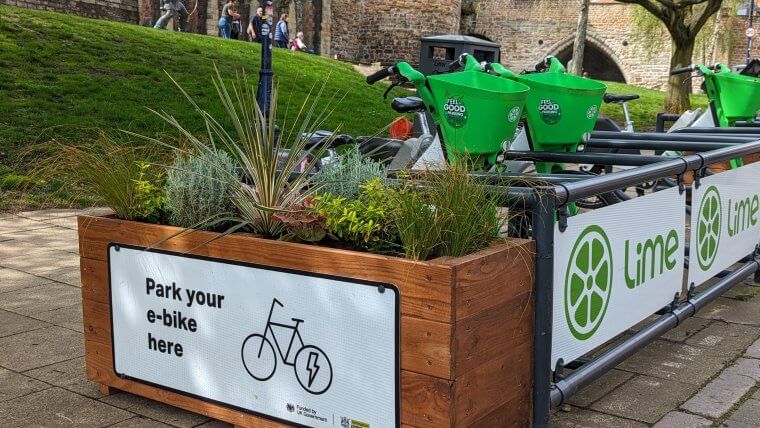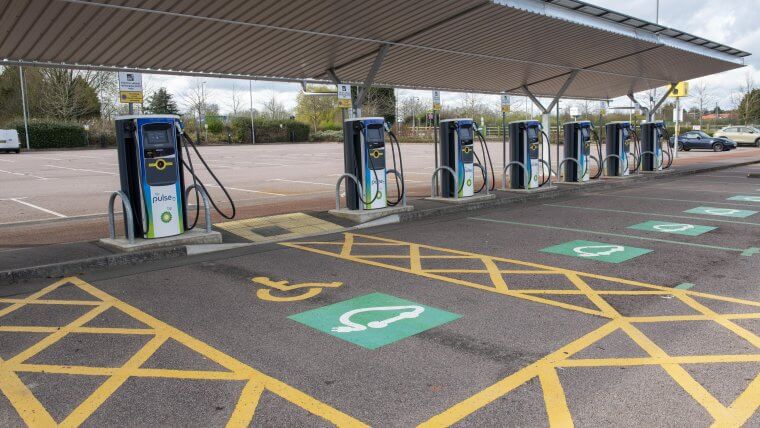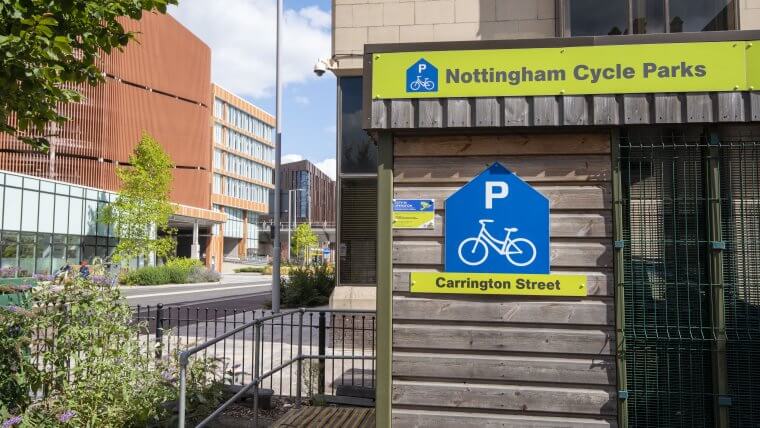18 December

2020 presented a unique set of challenges for all of us, and saw a major shift in how and why we travel around the city.
Despite the difficulties there has been real progress, so we thought we’d take a moment and look back at some of the major transport achievements this year.
People got active
Travel restrictions may have forced us to stay local, but our traffic counters showed that people took advantage of the quieter roads and hopped on their bikes. Cycle numbers more than doubled from pre-pandemic levels over the weekends from March-September. Hopefully, more people starting – or returning to – cycling this year will lead to more active travel journeys in future.
Nottingham started scooting
Nottingham began an exciting trial of 200 electric scooters as a green alternative for short journeys. It’s still early days, but in the first month over 3,000 people registered to use them and over 38,000 miles were ridden – that’s the same as circumnavigating the globe!
Ticketing got smarter
Contactless payments became available on trentbarton and NCT. Not only does this offer more ways to pay, but contactless has proved more important than ever given the pandemic. In addition, the Robin Hood ticketing app now allows people to top-up on your phone, so there’s even more contactless ways to pay.
We helped local businesses go green
With funding from Highways England 50 electric vans have been made available so businesses who are interested in switching from traditional diesel and petrol vehicles can give electric a go before committing finically. We can also help them with the additional expense of setting up charging points.

More space was made for active travel
Over the summer the Government announced an Active Travel Fund to help councils re-allocate road space for cyclists and pedestrians. We installed temporary cycle lanes and car free streets to encourage people to walk and cycle more. 165 bikes were given to key workers to help them get where they needed to be safely. This month we received further funding to expand these trial areas and develop more active travel routes around the city.
The city centre changed
Collin Street closed to vehicles this year, and the new look city centre began to take shape. Pushing vehicles away from the area and onto the southern relief route will create an exciting new heart to the city – built for people not cars. The future of the former shopping centre site is still up for debate (join the Broadmarsh big conversation), but with the car park and college near completion this year it was clear that major transformation is well underway.

Transforming Cities funding was awarded
Nottingham and Derby were awarded £161million in a joint bid to improve transport to key employment sites and promote sustainable transport options. Funding was used to update real time displays and big things will be coming in 2021 and 2022 you can check out the full list of projects here.
We helped people park nearer home
Our traffic management team installed 11 residential parking schemes across the city to help hundreds of residents park closer to their homes.
Parliament Street was repaired
Lower Parliament Street is one of the busiest bus routes in the city with over 250 buses an hour. The road was in need of repair, but with so many buses to divert this was a logistical challenge. Careful planning and coordinated working between the council and the bus companies ensured the road was repaired with minimal disruption.

Major tram track repairs took place
The long curve of track from the Theatre Royal through Old Market Square is one of the busiest stretches of the network, and had served the city well for the past 16 years. This section of track was replaced in the summer, and the team worked hard to complete this important work ahead of schedule, and keep the trams gliding along for the next decade.
We worked to keep Nottingham Moving safely
We know our city has the best bus and tram operators – but this year they pulled out all the stops to keep Nottingham safe. All operators took this responsibility seriously with extra cleaning of buses and trams throughout the day, and spray-painted social distance markers at stops. Staff had to tackle increased anti-social behaviour and new procedures to manage mask wearing and social distancing on board.

Our green taxi fleet continued to grow
The first 100% electric taxi joined Nottingham’s fleet of ULEV hackney cabs bringing us one step closer to our carbon-neutral pledge by 2028. Having another ULEV option gives drivers more choice when choosing to replace outdated diesel cabs with a green alternative.
Real time signs got an upgrade
100 new real time signs have been installed across the city centre and at key places such as the universities and hospitals to replace the ageing LED signs. The new signs have greater flexibility and can relay more complicated messages in the event of delays or issues on the roads, to help take the uncertainty out of your journey.
We asked for your thoughts
To better gather opinions and real life experiences out on the roads and pavements we launched Commonplace a direct way of communicating with you to find out what we can do to help get you from A to B.
Safer streets around schools
Roads outside eight schools were closed to traffic when schools returned for the autumn term – to encourage more children to walk, cycle or scoot to school and support social distancing.
There are some big projects on the horizon for 2021, that could see work start on a new bridge over the Trent, more cycle lanes, bus priority corridors and the expansion of parking at tram park and ride sites. Watch this space.





